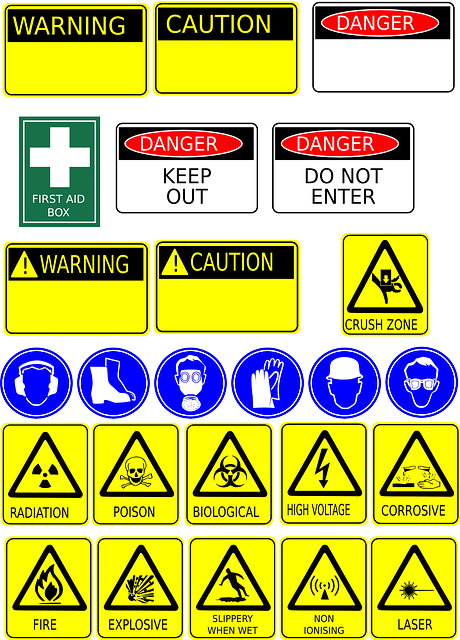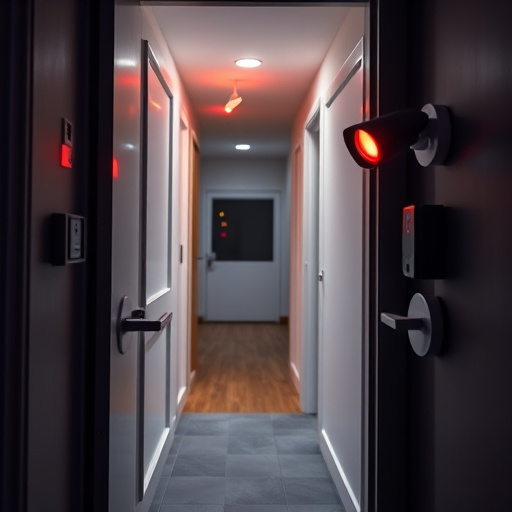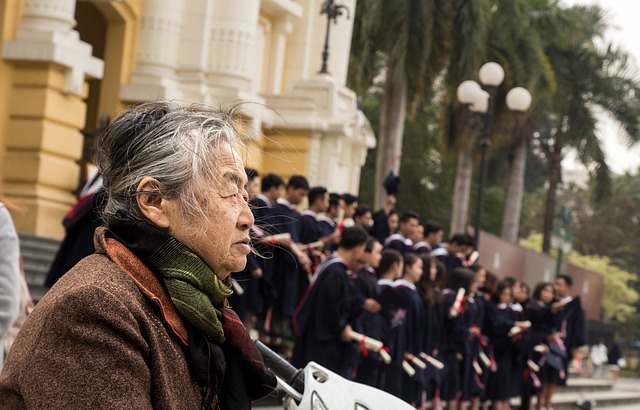Personal Safety Awareness is crucial for navigating daily life, encompassing both basic and proactive measures. Daily safety tips include simple practices like vigilance in crowded places and securing belongings, while everyday strategies involve first aid knowledge and community watch participation. Mindfulness cultivation enhances decision-making and overall well-being, making it an essential component of personal safety. Integrating practical measures into routines, from environment assessment to self-defense learning, ensures preparedness against physical and cyber threats. Staying aware and updating daily practices according to evolving risks are key to enhancing security and peace of mind in today's dynamic world.
Personal safety is an essential aspect of our daily lives, often overlooked yet crucial for overall well-being. In today’s world, staying alert and informed can prevent potential dangers and mitigate risks. This article explores the significance of personal safety awareness and provides valuable insights into various practical strategies. From understanding the basics of everyday safety tips to learning how mindfulness can enhance your guard, we guide you through effective ways to protect yourself. Discover simple yet powerful techniques to build an unwavering personal safety plan and stay ahead of emerging threats.
- Understanding Personal Safety Awareness: A Key to Everyday Well-being
- Daily Safety Tips for a Secure Lifestyle
- The Role of Mindfulness in Enhancing Personal Safety
- Common Dangers and Their Simple Mitigation Strategies
- Building an Effective Personal Safety Plan
- Staying Ahead: Continuous Learning and Adapting to New Threats
Understanding Personal Safety Awareness: A Key to Everyday Well-being

Personal Safety Awareness is a crucial aspect of our daily lives that often goes unnoticed. It involves being attuned to your surroundings, understanding potential risks, and knowing how to respond effectively. By cultivating a heightened sense of awareness, individuals can significantly enhance their personal safety and overall well-being. Daily safety tips range from simple practices like staying vigilant in crowded places to more proactive strategies such as learning basic self-defense techniques or keeping emergency contacts readily available.
Developing everyday safety strategies requires a combination of common sense and preparedness. Staying aware for safety means constantly evaluating your environment, trusting your instincts, and taking appropriate precautions. This might include being mindful of your surroundings when walking alone at night, knowing the exit routes in public spaces, or having a plan for unexpected situations. By integrating these practices into our routines, we can better navigate life’s challenges and ensure that personal safety remains a top priority.
Daily Safety Tips for a Secure Lifestyle

Staying alert and practicing personal safety awareness is a vital part of navigating daily life. Simple yet effective daily safety tips can significantly enhance your overall security and peace of mind. Start by being mindful of your surroundings; observe any unusual activity or potential threats and trust your instincts. Keep your personal space secure by locking doors and windows, especially when leaving home or retiring for the night. Additionally, ensure your belongings are safe while in public places, using discreet yet effective strategies like keeping valuable items hidden and never leaving them unattended.
Integrating everyday safety strategies into your routine can deter potential dangers. Regularly update your contacts with emergency numbers and inform someone trustworthy about your plans when heading out, especially if venturing to unfamiliar locations. Being prepared for emergencies by knowing basic first aid and having a well-stocked emergency kit at home and in your vehicle is also crucial. Lastly, stay informed about local safety guidelines and community watch programs to actively contribute to a safer environment.
The Role of Mindfulness in Enhancing Personal Safety

In today’s world, cultivating a sense of mindfulness plays a pivotal role in enhancing personal safety and fostering a deeper awareness of our surroundings. By staying present and attentive, individuals can become more attuned to potential risks or suspicious activities, transforming them from passive victims to proactive guardians of their well-being. Mindfulness encourages us to observe our environment without judgment, noticing subtle cues that might indicate danger or provide valuable insights for avoiding accidents or harmful situations.
Practicing mindfulness in daily life involves simple yet powerful techniques such as conscious breathing, body scans, and mindful walking. These practices help individuals stay grounded, improving their ability to make quick, rational decisions when faced with challenging situations. Incorporating mindfulness into our routines not only boosts personal safety awareness but also enhances overall well-being, promoting a sense of calm and resilience in the face of life’s challenges. Everyday safety strategies like these are essential components of a comprehensive approach to personal safety, ensuring we navigate the world with enhanced perceptiveness and preparedness.
Common Dangers and Their Simple Mitigation Strategies

In our daily lives, we encounter numerous potential dangers that can be mitigated with a keen eye for personal safety awareness. From simple everyday safety strategies like being mindful of our surroundings to more proactive measures such as knowing basic self-defense techniques, these practices are essential in enhancing our daily safety tips. For instance, when walking alone at night, staying on well-lit paths and avoiding isolated areas can significantly reduce the risk of unforeseen incidents.
Additionally, keeping emergency contact numbers readily available on our phones and learning basic first aid skills enable us to respond swiftly and effectively if ever confronted with an urgent situation. By cultivating a culture of safety awareness in our routines, we not only protect ourselves but also contribute to fostering safer communities overall.
Building an Effective Personal Safety Plan

Building an Effective Personal Safety Plan involves integrating a series of practical and proactive measures into your daily routine. Start by assessing your environment, both physical and digital. Be mindful of your surroundings when out in public, and consider potential risks or hazards. This awareness is the cornerstone of personal safety. Simple yet effective strategies include keeping a close circle of trusted friends or family members informed about your whereabouts, especially during late-night outings or unfamiliar locations.
Implementing everyday safety strategies such as learning basic self-defense moves, carrying essential emergency contacts, and ensuring your home security measures are up to date can significantly enhance personal safety. Regularly updating your knowledge on personal safety awareness through reliable sources will enable you to adapt to evolving circumstances, thereby staying ahead of potential risks. Always remember that the importance of safety awareness cannot be overstated; it’s a vital component in leading a secure and worry-free life.
Staying Ahead: Continuous Learning and Adapting to New Threats

Staying ahead in today’s ever-changing world demands a continuous learning mindset when it comes to personal safety. The landscape of potential threats is dynamic, with new challenges emerging regularly. Whether it’s cyber-attacks, physical assaults, or natural disasters, being prepared involves staying informed and adaptable. Regularly updating your daily safety tips and strategies is essential for enhancing personal safety.
Engaging in continuous learning allows individuals to stay aware of the latest safety measures and best practices. This includes keeping up with personal safety awareness resources, attending workshops or seminars, and participating in online courses focused on everyday safety strategies. By doing so, you can better navigate unexpected situations, protect yourself, and even help others when necessary.






